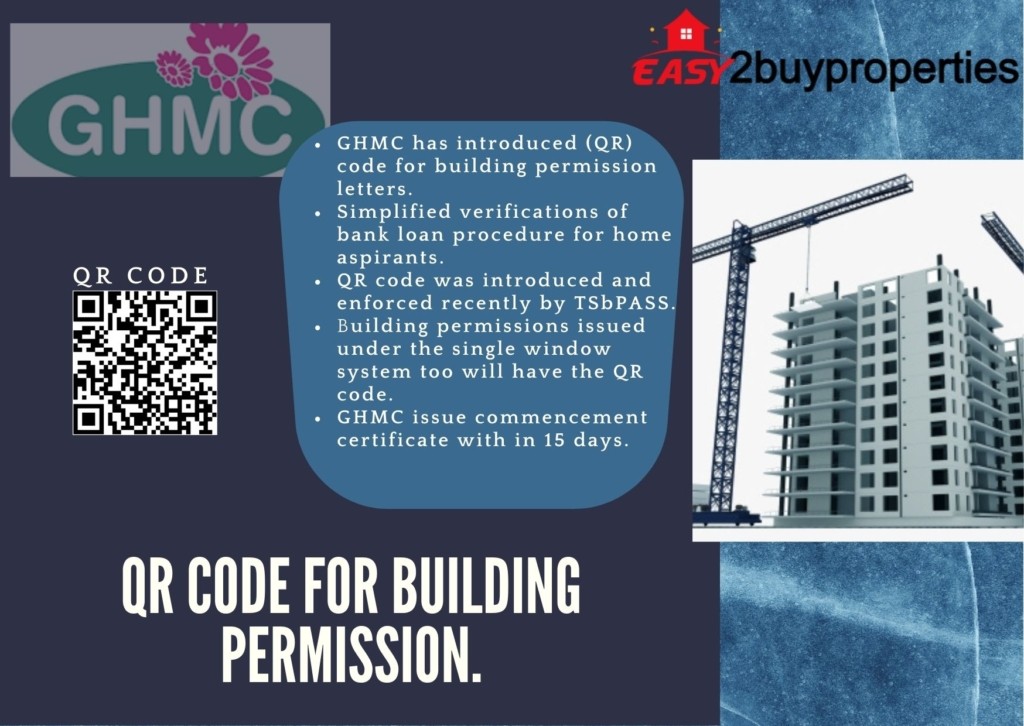
GHMC has introduced (QR) code for building permission letters which have simplified the people to carry the documents electronically and forward it who needs for verifications of bank loan procedure for home aspirants.
QR coding of permissions was non-existent during the earlier online DPMS (Development Permission Management System), The QR code was introduced and enforced recently by TSbPASS (Telangana State Building Permission Approval and Self Certification System), in order to rule out forgeries and irregularities and ease any further documentation processes.
Once details of the buildings are entered by the homeowners, the system automatically generates the building permission order, which will be imprinted with a QR code.
The code, when scanned from a mobile, will fetch the permission letter. This will simplify the verification process by banks to issue loans, and thus help the homeowners.
While all the building permissions issued under the single window system too will have the QR code, the system has now been upgraded to show the status of the permission issued post verification too.
GHMC issue commencement certificate if satisfied with all the parameters post verification of the plot on the ground within 15 days after issue of building permission letter. By scanning the QR code after a fortnight, the banker may also know the status of commencement certification.
In the due-course QR code must be introduced to all the districts of Telangana. This may ease the documentation process and legitimate the validation.
Comments